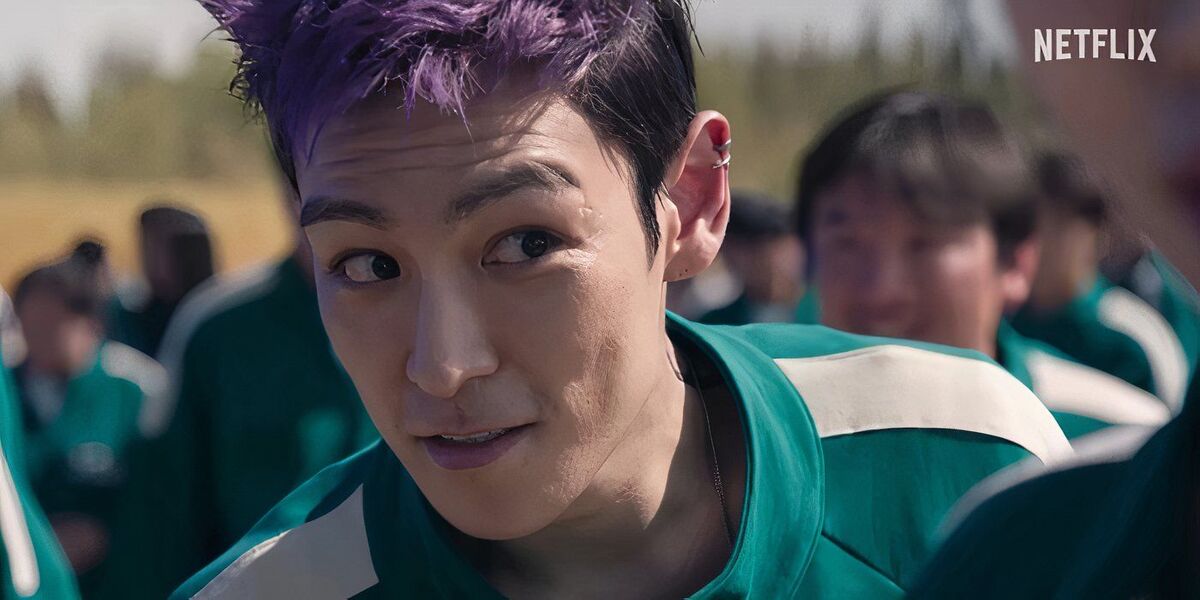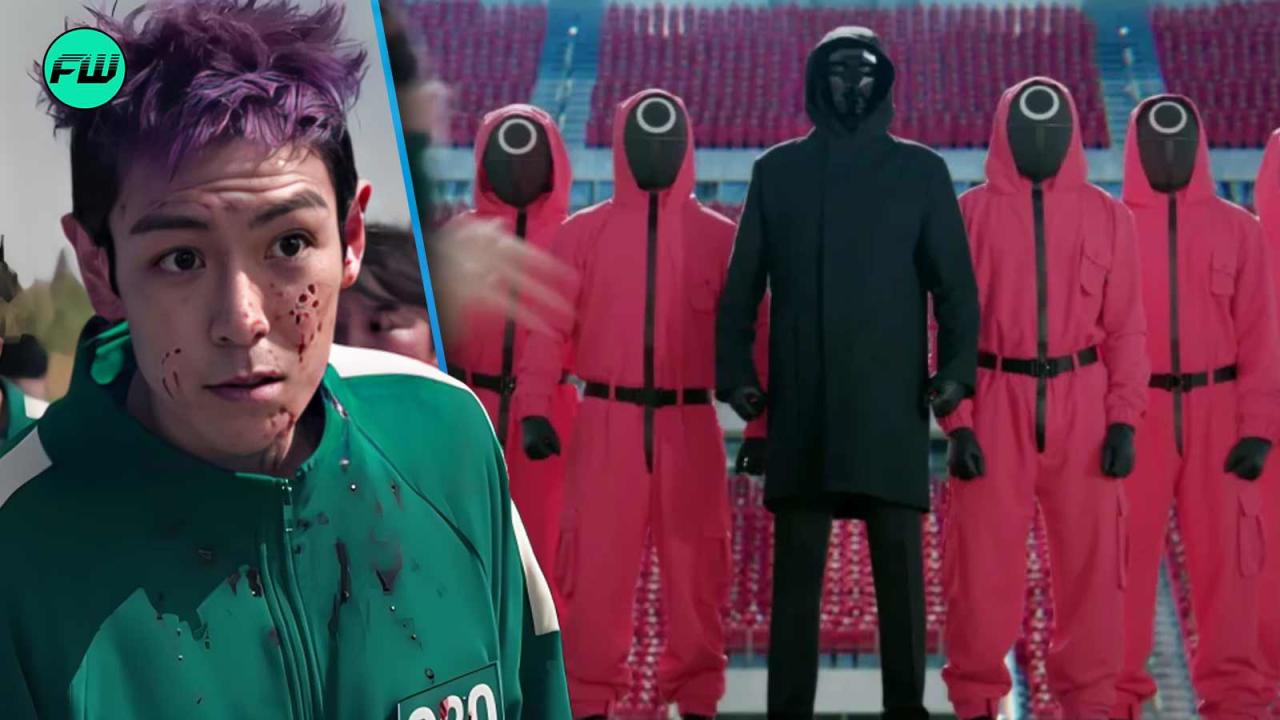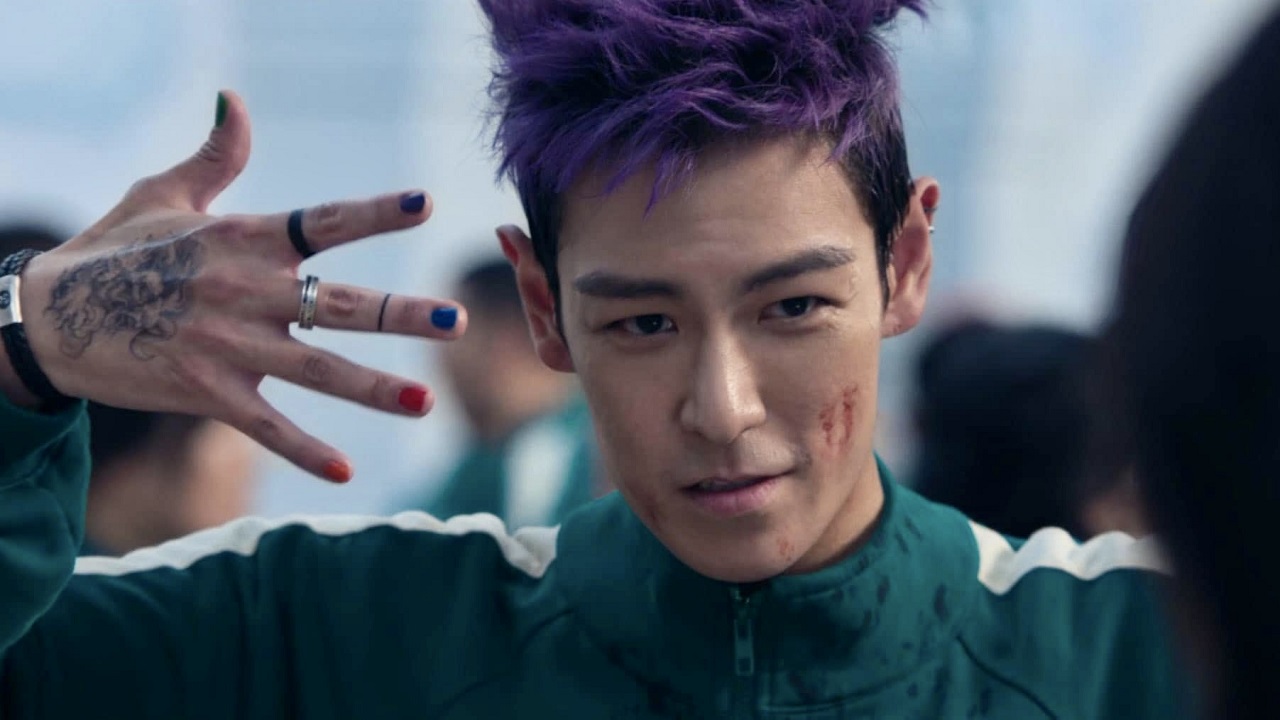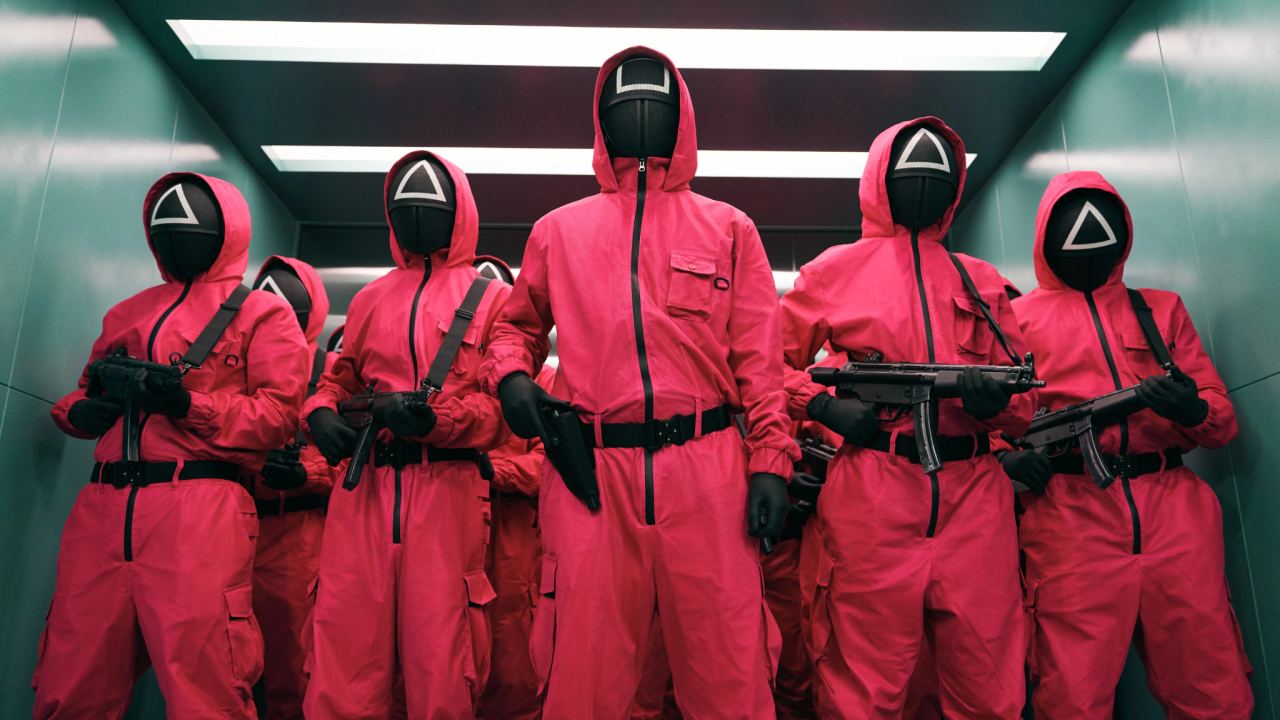Squid Game Thanos: This exploration dives deep into the surprising parallels between the brutal survival game of Squid Game and the devastating snap of Thanos in the Marvel Cinematic Universe. We’ll dissect the moral complexities, visual styles, character archetypes, and narrative structures of both, revealing unexpected common threads and highlighting the stark differences. Get ready for a thought-provoking comparison of power, choice, and the ultimate consequences.
From the stark color palettes and visually striking costumes to the overarching themes of survival and sacrifice, we’ll examine how both narratives use visual storytelling to create a powerful impact. We’ll also explore the motivations and choices of the characters, comparing the desperate players of Squid Game to Thanos’ followers, and analyzing how these choices shape the narrative arc of each story.
Prepare to question the nature of power, the weight of choice, and the lasting consequences of both individual and collective actions.
Squid Game’s Themes and Thanos’ Snap

Both Squid Game and Thanos’ snap in the Marvel Cinematic Universe present chilling scenarios exploring the darkest aspects of human nature under extreme pressure. While vastly different in scale and execution, both narratives grapple with similar moral dilemmas concerning survival, sacrifice, and the consequences of unchecked power. They offer compelling, albeit disturbing, explorations of societal collapse and the choices individuals make when faced with life-or-death situations.The moral dilemmas presented in each scenario are starkly different yet share a common thread of unavoidable loss.
In Squid Game, the contestants face a series of deadly children’s games, forced to choose between collaboration and betrayal, all for a chance at immense wealth. The games themselves are a microcosm of societal inequalities, exposing the desperation driven by poverty and the corrupting influence of immense wealth. Thanos, on the other hand, believes he is acting for the greater good by eliminating half the universe’s population to prevent resource depletion.
His moral dilemma stems from a utilitarian calculation, sacrificing many to save the rest. While seemingly altruistic, his actions are undeniably tyrannical, disregarding individual rights and free will.
Societal Implications of Extreme Measures
The societal implications of both scenarios highlight the fragility of social structures under immense stress. Squid Game depicts a society where economic disparity creates a breeding ground for desperation, leading individuals to risk their lives for a chance at escaping poverty. The games themselves become a symbol of the dehumanizing effects of unchecked capitalism and societal inequality. Thanos’ snap, while seemingly a singular event, has devastating consequences across the universe.
The sudden loss of half the population leads to widespread chaos, fracturing societies and leaving behind a world grappling with immense loss and rebuilding efforts. The survivors are left to deal with the trauma and the profound implications of a world fundamentally altered by an act of cosmic genocide.
Character Choices and Motivations
The choices made by characters in both narratives reveal a spectrum of human behavior under duress. In Squid Game, some players cooperate, forming alliances based on trust and shared desperation. Others prioritize self-preservation, resorting to deceit and violence to survive. Gi-hun’s journey, for instance, showcases a moral struggle between self-interest and empathy. Thanos, on the other hand, is driven by a belief in his own righteousness, believing his actions are necessary, regardless of the cost.
His unwavering conviction, even in the face of opposition, underscores the dangers of unchecked power and the potential for well-intentioned actions to have catastrophic consequences. The contrast between the desperation-driven choices in Squid Game and the self-assured, albeit ruthless, decision-making of Thanos highlights the diverse ways individuals respond to existential threats.
Visual Parallels
BothSquid Game* and the MCU’s portrayal of Thanos share surprising visual similarities, despite their vastly different narratives. A comparative analysis reveals intriguing parallels in their use of color, costume design, and overall aesthetic to establish tone and enhance thematic resonance. These shared visual elements contribute to the unsettling atmosphere and heightened stakes present in both fictional universes.
The visual language employed in each universe, while serving different narratives, creates a powerful impact through carefully chosen aesthetics. This analysis will explore these similarities and differences, focusing on how the visual choices contribute to the overall narrative and emotional experience for the viewer.
Comparative Visual Representation
The following table provides a visual comparison of key aesthetic elements in
-Squid Game* and Thanos’ MCU appearances. The imagery emphasizes the deliberate use of color, costume, and set design to evoke specific moods and enhance the narrative impact.
| Element | Squid Game | Thanos | Comparison |
|---|---|---|---|
| Color Palette | Predominantly muted tones of grey, green, and beige, punctuated by shocking bursts of vibrant red (blood, game elements) and the bright pink of the guards’ uniforms. This creates a stark contrast, highlighting the brutality of the games against the drab backdrop of reality. | Dark purples, greys, and browns, offset by the metallic sheen of his armor. This color palette reflects his power and ominous nature, emphasizing his role as a destroyer. | Both utilize a primarily dark palette, but
|
| Costume Design | The stark green tracksuits of the players create a sense of uniformity and dehumanization. The pink jumpsuits of the guards are a jarring contrast, visually representing authority and cruelty. | Thanos’ armor is imposing and visually striking, signifying his immense power and unwavering resolve. The armor’s design and color are consistently menacing. | Both utilize distinct costumes to visually categorize characters and highlight power dynamics. The uniformity of the
|
| Set Design | The stark, minimalist settings of the games are visually striking. The juxtaposition of simple, almost childlike game sets against the backdrop of intense violence creates a disturbing contrast. | Thanos’ homeworld, Titan, is depicted as a desolate and barren landscape, reflecting the consequences of his actions and his own internal conflict. His presence often looms large over vast, empty spaces. | Both universes use environments to amplify the narrative’s themes.
|
| Overall Visual Tone | A blend of unsettling minimalism and shocking bursts of color creates a visually disturbing and memorable experience. The stark contrast enhances the feeling of dread and suspense. | A dark and brooding aesthetic, emphasizing the weight of Thanos’ actions and his looming presence. The visual tone reinforces his character’s gravity and the devastating consequences of his plan. | Both employ visual styles that contribute directly to the narrative’s impact. The contrasting approaches create distinct but equally effective emotional responses. |
Visual Language and Thematic Conveyance
Both
-Squid Game* and the MCU’s portrayal of Thanos use visual language to communicate their respective themes. The use of color, costume, and set design is intentional and contributes significantly to the overall narrative.
In
-Squid Game*, the muted color palette underscores the desperation and dehumanization of the players. The vibrant pops of color—especially the red—serve as stark reminders of the violence and the games’ inherent brutality. The simple, almost childlike game sets are a deliberate contrast to the life-or-death stakes, creating a sense of unsettling irony. The stark uniformity of the players’ tracksuits emphasizes their loss of individuality and agency.
In contrast, Thanos’ visual representation emphasizes his power and ominous nature. The dark, brooding color palette and imposing armor visually communicate his strength and unwavering resolve. The desolate landscapes of Titan reflect the consequences of his actions and his internal struggle. The scale of his presence often dwarfs his surroundings, further reinforcing his dominance.
Character Archetypes

Squid Game and Thanos’s snap, while vastly different in setting and scale, share a surprising number of similarities in their character archetypes. Both narratives populate their worlds with individuals driven by desperation, cunning, and altruism, though the context and consequences of these traits differ significantly. Examining these shared archetypes reveals interesting parallels in how human nature responds to extreme pressure and existential threats.Exploring the motivations and actions of these characters illuminates the core themes of both narratives: the struggle for survival, the corrupting influence of power, and the ethical dilemmas inherent in extreme circumstances.
Okay, so you’re thinking about the Squid Game Thanos mashup, right? That whole “eliminate half the population” vibe is pretty intense. It makes you think about large-scale disasters, like the tragic plane crash korea incident, where the loss of life was devastating. The scale of such events puts the Squid Game’s fictional violence into a chilling, real-world perspective.
It’s a stark reminder of the fragility of life.
Desperate Players and Thanos’s Supporters
The desperate archetype is central to both narratives. In Squid Game, the players are overwhelmingly driven by crippling debt and a lack of opportunities. Their participation is a gamble for survival, a desperate attempt to escape their bleak realities. Similarly, many of Thanos’s followers, particularly those from ravaged planets, believe his actions, however brutal, are necessary to prevent universal resource depletion and societal collapse.
They see Thanos as a necessary evil, a harsh but ultimately benevolent dictator who is making the difficult choices no one else is willing to make. Their desperation stems from a perceived lack of other options, a belief that Thanos’s methods, while extreme, are the only way to secure a future for their people. This shared desperation, however, leads to very different outcomes.
In Squid Game, desperation often fuels selfishness and betrayal. In the Thanos narrative, it fosters a disturbingly unquestioning loyalty to a genocidal leader.
Cunning Players and Thanos’s Strategists, Squid game thanos
The cunning archetype also plays a significant role. In Squid Game, characters like Sang-woo skillfully manipulate others to gain an advantage, often at the expense of their fellow players. Thanos’s strategists, like Ebony Maw, employ similar tactics, using intellect and manipulation to further Thanos’s goals. They are masters of planning and deception, prioritizing strategic advantage over moral considerations. The difference lies in the scale of their manipulation: Sang-woo’s schemes affect a few dozen individuals, while Ebony Maw’s actions influence the fate of entire civilizations.
Both, however, demonstrate the seductive power of cunning in high-stakes situations, illustrating how the pursuit of self-preservation can justify morally questionable actions.
Altruistic Players and Thanos’s Opponents
The altruistic archetype provides a counterpoint to the self-serving characters. In Squid Game, Gi-hun’s initial compassion and attempts to foster cooperation among the players showcase this archetype. Similarly, Thanos’s opponents, like the Avengers, are motivated by a commitment to protecting life and upholding justice, even in the face of overwhelming odds. They prioritize the well-being of others over their own survival.
The crucial difference lies in the effectiveness of their altruism. Gi-hun’s attempts at altruism are largely unsuccessful within the brutal context of the games, highlighting the limitations of kindness in a zero-sum environment. The Avengers, on the other hand, ultimately succeed in thwarting Thanos, although at a great cost, demonstrating the potential impact of collective action driven by altruistic principles.
Narrative Structure and Pacing

Both Squid Game and the Thanos storyline in the MCU utilize distinct narrative structures to achieve their respective goals, resulting in vastly different pacing and audience engagement. Squid Game employs a tightly wound, episodic structure, focusing on a contained group of characters facing escalating life-or-death challenges. The MCU’s Thanos arc, conversely, unfolds across multiple films, weaving a sprawling narrative with numerous interconnected storylines that gradually build towards a climactic confrontation.The pacing of Squid Game is relentless.
Each game acts as a distinct chapter, raising the stakes and eliminating players at a rapid pace. This creates a sense of immediate urgency and high tension, keeping viewers on the edge of their seats. The Thanos storyline, in contrast, adopts a more measured pace, allowing for character development and world-building across multiple films. This slower burn approach builds anticipation for the inevitable clash, but at times risks losing momentum.
Suspense and Tension Building
Squid Game masterfully builds suspense through its unpredictable game designs and the constant threat of death. The unknown nature of each game, combined with the vulnerability of the players, creates a palpable sense of dread. The audience is consistently kept guessing, mirroring the characters’ anxieties and uncertainties. Thanos’ arc employs a different method. Suspense is built through the gradual reveal of his plan and the escalating consequences of his actions across multiple films.
The audience understands the threat Thanos poses, but the uncertainty lies in how he will achieve his goal and whether anyone can stop him. This approach fosters a different kind of suspense, more focused on the long-term consequences and the overall arc of the narrative.
Climax and Resolution
Squid Game culminates in a single, intense game that determines the fate of the remaining players. The climax is immediate and brutal, leaving little room for ambiguity. The resolution, while offering a glimpse into the protagonist’s future, leaves many questions unanswered, reflecting the grim reality of the situation. The Thanos storyline, on the other hand, culminates in a massive, multi-location battle in Avengers: Endgame.
This climax is a spectacle of epic proportions, resolving many storylines simultaneously. The resolution, while definitive in terms of Thanos’ defeat, leaves room for further exploration of the consequences of his actions.
Okay, so you’re into the whole Squid Game Thanos vibe? That chaotic energy is pretty intense, right? It makes you think about other large-scale disasters, like the devastating impact of the airplane crash halifax which, similarly, involved immense loss and unforeseen consequences. Thinking about that brings the Squid Game stakes into a whole new, terrifying perspective – it’s all about the sudden, brutal end.
Narrative Choices and Overall Impact
The tightly controlled, episodic nature of Squid Game enhances its impact by focusing on the immediate human cost of desperation and inequality. The viewer is forced to confront the harsh realities faced by the characters, creating a powerful emotional response. The sprawling nature of the Thanos storyline allows for a broader exploration of themes like sacrifice, responsibility, and the consequences of unchecked power.
The sheer scale of the narrative contributes to a sense of epic grandeur, but can sometimes overshadow the individual struggles of the characters. The contrasting narrative choices of both stories contribute to their respective strengths and highlight the different ways a story can be told and its impact achieved.
The Power of Choice and its Consequences

Both Squid Game and the Thanos narrative from the Marvel Cinematic Universe explore the devastating consequences of choices, albeit on vastly different scales. While Squid Game focuses on the desperation and moral compromises of individuals facing dire economic circumstances, Thanos’ actions stem from a warped, albeit self-proclaimed, altruistic goal. Both narratives highlight the weight of individual choices and their ripple effects on the lives of others, forcing viewers to confront the complexities of morality and the unpredictable nature of consequence.The significance of choice is paramount in both narratives.
In Squid Game, the players are presented with a constant stream of life-or-death choices, each carrying immense personal risk. Their decisions, whether to cooperate or betray, to trust or deceive, directly influence their survival and the fate of fellow players. Thanos, on the other hand, makes a singular, overarching choice: to eliminate half the universe’s population to prevent resource depletion.
So you’re into the whole Squid Game Thanos vibe? That chaotic energy translates really well to other visual spectacles. Think about it: the massive scale and unexpected twists are similar to what you’d see at a killer drone show , where hundreds of drones create intricate, moving patterns in the night sky. It’s like a Squid Game-level visual feast, but with way less deadly consequences (hopefully!).
The unexpected formations and dynamic displays are almost as mind-blowing as a Thanos snap.
This single act of cosmic genocide has catastrophic consequences, impacting countless lives and fundamentally altering the fabric of reality.
Types of Choices Presented
Squid Game primarily showcases individual choices with immediate consequences. Players grapple with moral dilemmas, forced to choose between self-preservation and empathy, often sacrificing their personal ethics for survival. The games themselves offer limited options, creating a sense of inescapable pressure. Conversely, Thanos’ choice is a collective one, albeit one made unilaterally. He dictates the fate of trillions, acting as a judge and executioner without their consent.
His decision is presented as a necessary evil, a calculated sacrifice for the “greater good,” ignoring the inherent value and agency of individual lives. The contrast highlights the ethical complexities of individual versus collective decision-making and the potential for devastating consequences when individual rights are disregarded in the pursuit of a perceived greater good.
Levels of Agency in Influencing Fate
The level of agency characters possess in shaping their own and others’ fates varies significantly between the two narratives.
- Squid Game Players: While their initial choice to participate sets the stage, players retain some agency within the games themselves. Strategic alliances, acts of kindness, and even moments of defiance demonstrate a capacity to influence their survival, albeit within a highly constrained environment. Their choices, however, are constantly circumscribed by the game’s brutal rules and the manipulative actions of the game masters.
The level of agency is limited but not entirely absent.
- Thanos: Thanos possesses almost absolute agency. His decision to enact the snap is a unilateral act of immense power, effectively determining the fate of half the universe without consulting or considering the affected populations. His agency is complete, but his decision is arguably morally reprehensible and driven by a flawed premise.
- Game Masters (Squid Game): The game masters in Squid Game wield complete control, manipulating the players and dictating their fates. Their agency is absolute within the confines of the game, demonstrating the potential for those in positions of power to manipulate choices and determine outcomes.
Final Summary: Squid Game Thanos
Ultimately, the comparison between Squid Game and Thanos reveals fascinating insights into human nature, the allure of power, and the devastating consequences of unchecked ambition. While vastly different in setting and scale, both narratives grapple with profound moral dilemmas, forcing us to confront uncomfortable truths about survival, sacrifice, and the choices we make in the face of overwhelming odds. The similarities, while unexpected, underscore the enduring power of certain narrative themes and their ability to resonate across diverse fictional universes.
Top FAQs
What are the key differences in the types of choices characters face in each narrative?
Squid Game presents choices often rooted in immediate survival needs, while Thanos’ choices are driven by a larger, albeit arguably misguided, vision for the universe. Squid Game’s choices are largely individual, while Thanos’ impact is profoundly collective.
How do the narratives handle the theme of sacrifice?
Both narratives explore sacrifice, but from different perspectives. In Squid Game, sacrifice is often personal and driven by desperation or altruism. Thanos’ “sacrifice” is presented as a necessary evil for the greater good, a perspective many find morally questionable.
What are the main visual differences between the two universes?
While both use striking visuals, Squid Game leans towards a more vibrant, almost hyper-realistic aesthetic, while the MCU’s portrayal of Thanos often utilizes darker, more epic visuals to emphasize his power and the cosmic stakes involved.